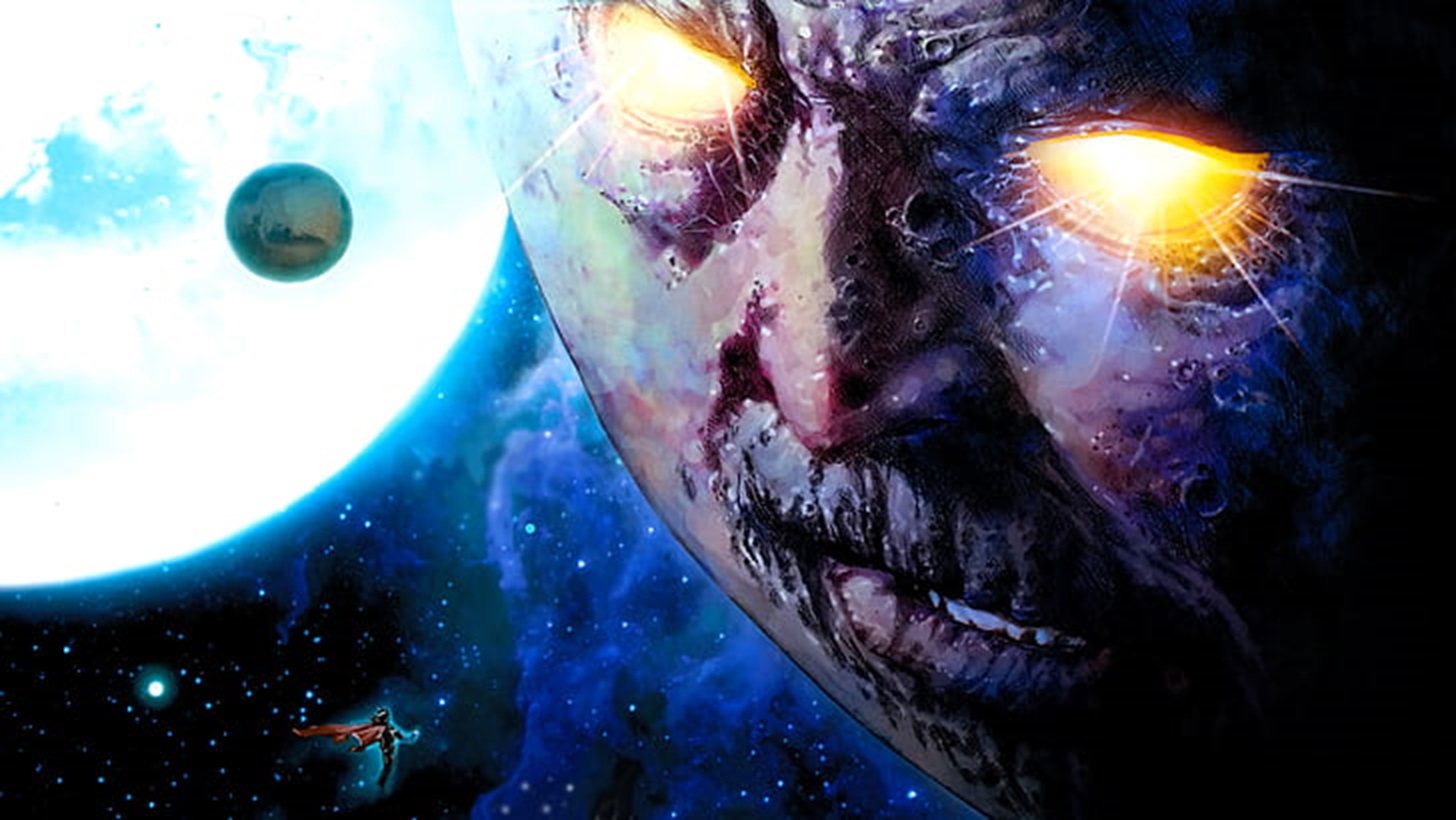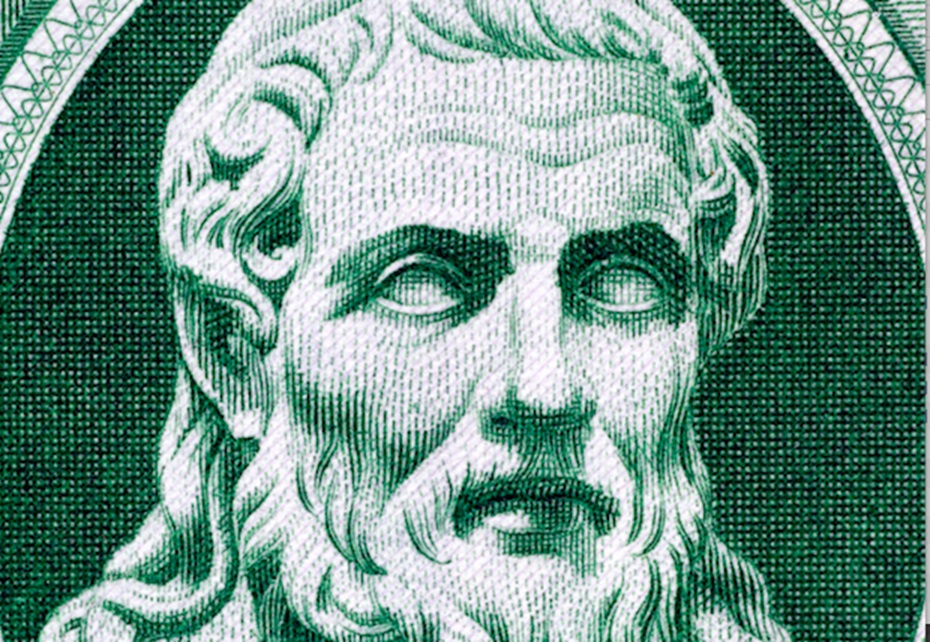The twist (or ‘nuance’) in the Gnostic myth of how the universe was created (and the account of the dynamics of how the Cosmos is run to this day) is that there is an appearance which is different from the actual nature of things, a name that is different from the unnameable truth. So, the story starts with this powerful but blind entity which has the name of the benevolent Creator God but which is in reality (outside of the story he himself tells us) something entirely different (which is to say, an impostor or fraud). This – we might say – is the basic ‘nuance’ of the Gnostic myth, which exists in shockingly dramatic contrast to the ‘non-nuanced’ story that is told in the chapter of Genesis.
The ‘non-nuanced’ view is where we accept the story we have told at face value and believe everything to be exactly what it is said to be. We automatically adapt to the structure that we have been provided with, in other words. Were we to accept them Gnostic myth, which is that the Demiurge was brought into existence by the actions of the Aeon Sophia (his mother) and that although she rejected him straightaway, full of horror at the abomination she had unwittingly brought into the world, and that he then created a false universe to trap living beings in, and lord it over them cruelly as Tyrant, this too would be a non-nuanced view, since no myth is meant to be taken literally. The understanding is not as easy as we thought it is, in other words. This is like saying that when we take the story of the fallen angel Satan literally (in our naivety) then we are actually falling right into the Deceiver’s trap! Not that there is (or ever could be) such a thing such an entity as the Deceiver (or the Devil), of course!
Applying this most metaphorical of metaphysics this to the modern world, we can say that human rulers (or governments) have the name of being wise, the name of being just, the name of being benevolent, etc., the nuance here is that they secretly embody the exact reverse of these lofty qualities – i.e., they are actually ignorant, prejudiced, malign, and so on. Or we can say that it applies to human society, which implicitly claims to be there ‘for our own good’, whilst (as we would immediately see if we were to take a subtler view, and not accept the crude version of reality that it espouses) the social system is brainwashing us into accepting a false or manufactured reality in order that it might benefit itself. We exist for it, rather than vice versa. Were we to see beyond the crass and self-serving lies of this Manufactured Reality then we would see that it exists not for our good at all, but purely in order to perpetuate and secure itself (since the only way it can do this is by keeping us asleep, keeping us deluded).
This is why the Cathars stated that all institutions (especially including the institution of the mediaeval Church!) are fundamentally evil. We are likely to find such an assertion very strange – if not to say downright aberrant or pathological – but this is of course simply because we’re taking the non-nuanced (or ‘passive’) view of things. When we look at the extraordinary lengths the Church went through in order to annihilate the Cathars from the face of the earth, and the hideous atrocities perpetrated in the course of the Albigensian crusade, this would – needless to say – tend to lend rather a lot of weight to the statement that human institutions are corrupt, are incorrigibly evil. What is familiar to us as ‘institutional abuse’ in more modern times is simply a continuation of this age-old theme therefore; we insist on thinking that this is an aberration and that it can be corrected for by bringing in the appropriate regulations, which is a laughable supposition. We’re trying to use the institution to cure itself; we’re trying to use policies and procedures to fix the harm that has been caused by policies and procedures. No matter how many new layers of the system we create, we’re never going to escape the systematic error that is inherent in it…
We can also apply this principle to thought, since as David Bohm says, thought is the template from which all systems and structures are derived, including the grand institution of society (which is essentially a set of rules or instructions telling us how to enact the mechanical mode of being). What we can say, then, is that the non-nuanced view is when we accept the output of thought unreflectively, with no closer examination. This is the ‘literal mindset’ therefore, which in its more extreme manifestations is clearly visible as a great disability (since it does not correspond in any way to the living reality). Having said this however, we also have to recognise that thought itself requires that we take its pronouncements and deliberations literally. Thought in itself is a purely literal or concrete kind of a thing and it simply has no capacity to be otherwise. It is based on categories after all, and categories can only ever say <yes> or <no>. There’s no way in which the machine that is the rational mind can say <yes> but mean <no>; there is no possibility of irony here. Most of us to some extent or in other can appreciate irony or metaphor or poetry, but this capacity has nothing to do with the thinking mind. This capacity is innate – it belongs to us, not to thought. The sense of humour, irony, creativity, poetry etc comes from who we really are, which has nothing to do with rationality or logic. As we read in metahistory.org –
The demiurge can only imitate, he cannot create or originate.
It is as if we are cyborgs therefore, made up both of the mechanical and the human, and when the machine part takes over – as it is so very prone to doing (since it has no sympathy for the human side of us but rather simply wishes to duplicate it in its own sterile format) – then this spells disaster for the spontaneous side of us. The machine is equivalent therefore to the Lower or Appetitive Self in Sufism, otherwise known as Rumi’s dragon. The machine aspect of us can also be seen as an implant, like Carlos Castaneda’s ‘foreign installation’ or George Gurdjieff’s ‘organ Kundabuffer’. It is also the genie which is a tremendously powerful servant as well as being – at the same time – an utterly tyrannical and undefeatable master. This is the motif of ‘the Sheriff of Nottingham’ (or ‘False Steward’); it also the motif we come across in the story of ‘The Master and his Apprentice’, where the foolish apprentice, in his master’s absence, summons a powerful demon from hell who he is unable to vanquish having called him forth. We can of course equally well equate the corrupt and evil ruler who enslaves anyone who comes under his power with the Demiurge – who is the Archetypal Tyrant.
There are any number of metaphors we could use here (including the film The Matrix, the Terminator movies, Philip Pullman’s dark Materials novels, or the Jim Carrie film The Truman Show, just to give a few examples from modern times) but what they all come down to – in psychological terms – is thought and its malign mastery over us. To say that we show no signs – collectively speaking – of having any understanding whatsoever of this Deep Principle would be to seriously understate the matter! We actually believe what our thinking tells us, as if there could ever be such a thing as ‘a true thought’. In a completely naive fashion, we take at face value the description of the world that we have been given, we subscribe – in other words – to the unnuanced view, the dumb copy-cate view, the generic ten-a-penny view that has not even the slightest trace of nuance in it. We don’t even know what the word ‘nuance’ means – our lives are blessedly free of it…
We are the typical ‘brainwashed devotees’ (or God’s Dummies’) in this respect, full of gushing saccharine praise for our manipulative master and flatly incapable of seeing his dark or malignant side, no matter how much evidence there is. Thought tells us ‘What IS’ – it makes positive or literal statements about the world thereby creating a concrete version of reality that we are obliged to unhappily inhabit. The problem with this is simply that all natural statements are automatically false, automatically deceptive, since there exists no ‘underlying concrete reality’ that may be thus described. There is all this heavy-handed emphasis, all this confidence, all this crushing black-and-white dogmatism or certainty, and yet at the same time, when it comes down to it, there’s nothing there to emphasise, nothing there to aggressively promote, nothing there to be confident or certain about. And the prime example of this – of course – is the self.
Image – Playground AI






